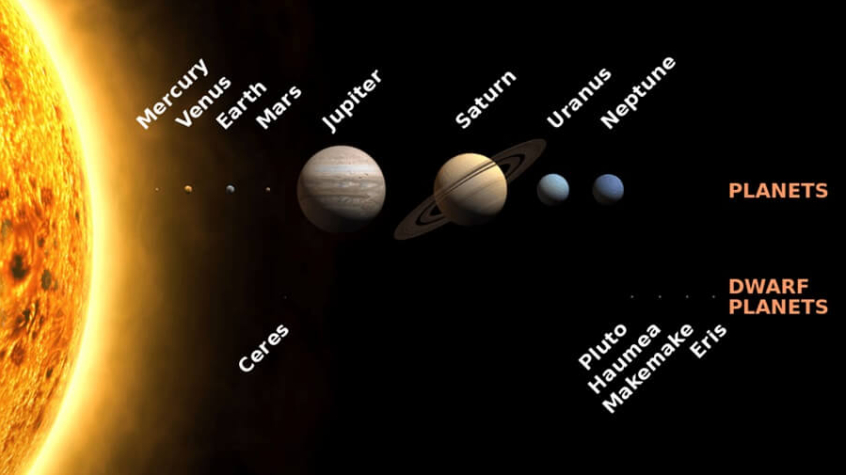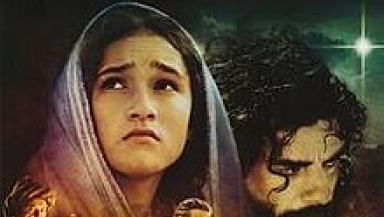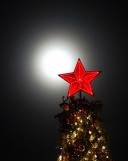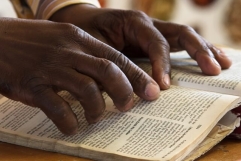
A YouGov poll has found more than half of people in the UK (56 per cent) definitely don't believe astrology works. Only four per cent definitely believe it does; 27 per cent think it might, and 13 per cent don't know.
The idea our fate is foretold by what the heavenly bodies are doing has been around for millenia. Stonehenge was built along axes of astrological significance. The Magi who followed the star to Bethlehem were probably astrologers.
Western astrology in its popular 'sun sign' form is a staple of tabloid newspapers; I looked up mine in one of them out of curiosity. "Someone you have fallen out with will offer an olive branch," it said. It's the middle of the afternoon and I'm still waiting. "Water flowing under the bridge will wash an old quarrel away." Not sure how that works. "Stop worrying about whether you will be able to give a partner everlasting happiness." That ship has sailed.
Most Christians would be glad to hear only four per cent of the population believe things like this. We'd want to encourage people to trust in God, rather than in things that have no basis in truth at all. Astrology – let's be clear about this – doesn't work.
But while nowadays most Christians would set their face firmly against astrology, this hasn't always been the case. For much of Christian history it's been accepted as a form of science, not at all in conflict with Christian doctrine. Shakespeare is full of astrological references – Romeo and Juliet are a "pair of star-crossed lovers"; Cassius says in Julius Caesar, "The fault, dear Brutus, is not in our stars,/ But in ourselves, that we are underlings." One of Elizabeth I's advisers, Dr John Dee, was a famous astrologer.

This is because in its purer form, astrology is a very complex discipline involving very complicated calculations related to the position of the stars and planets and a person's exact birth date. It claims to work because everything in the universe is organically connected, so it's possible to work out someone's character and the general course of their life.
It wasn't seen as un-Christian because God had made the whole universe, and what could be more likely than that everything fitted together in a miraculous whole? The writer and theologian CS Lewis was fascinated by it; Michael Ward's book Planet Narnia claimed he used the seven planets of mediaeval astrologers as themes for his Narnia books.
Nowadays, astrology's been comprehensively debunked as a pseudo-science, and Christians generally are the quickest to dismiss it.
On the other hand... astrology was so popular because it brings a sort of scientific rationale to bear on something we're all vulnerable to: a desire to know more about our own character and destiny. We really, really like knowing about ourselves. And in modern times, there are plenty of other candidates to fill the gap.
Social media are awash with personality charts and brain tests. One of the most popular is the Myers-Briggs Type Indicator (MBTI), used by everyone from casual Facebook browsers to proper companies wanting to assess prospective employees. Others purport to define you according to whether you're 'left-brain' or 'right-brain' dominated, more logical and rational or more creative and emotional.
Do they actually work? Unfortunately, there's not much evidence they do. In an article for Psychology Today, Adam Grant points out all sorts of problems with MBTI. Referring to its four personality categories, he says: "In social science, we use four standards: are the categories reliable, valid, independent, and comprehensive? For the MBTI, the evidence says not very, no, no, and not really." He concludes that "we all need to recognise that four letters don't do justice to anyone's identity".
What about the left brain/right brain division? A BBC blog entitled What does a scientist think of "right brain/left brain" tests? quotes Jeffrey Anderson, a brain researcher at the University of Utah: "The pop culture idea (creative vs. logical traits) has no support in the neuroscience community and flies in the face of decades of research about brain organisation, the functional roles of the two brain hemispheres and evidence from patients with lesions in one or the other hemisphere in the brain."
The challenge is this: Christians are just as fascinated by these new pseudo-sciences as anyone else. So in rejecting astrology, have we fallen victim to new ways of explaining ourselves to ourselves? And if we have, what are the dangers we face?
Here's one. Belief in astrology shifts responsibility on to external forces. It implicitly blames the stars for our sins and failures rather than ourselves.
Why are we so keen to find out which personality type we are? Is it because we can blame our brain chemistry for the things we do wrong rather than natural human sinfulness?
There's nothing wrong with trying to know ourselves better. But for Christians, that involves bringing every part of ourselves under the lordship of Christ. The problem with ancient astrology and modern personality tests is that they tell us what we want to hear. Discipleship is about aknowledging what we don't want to hear.
Follow Mark Woods on Twitter: @RevMarkWoods















